About Gems Press
Gems Press resurrects and republishes selected out-of-print books, and also creates collections of curated gems of information resurrected from old books and documents. We usually make the new versions available as free ebooks.

Books Worth Remembering

Gems Press resurrects and republishes selected out-of-print books, and also creates collections of curated gems of information resurrected from old books and documents. We usually make the new versions available as free ebooks.
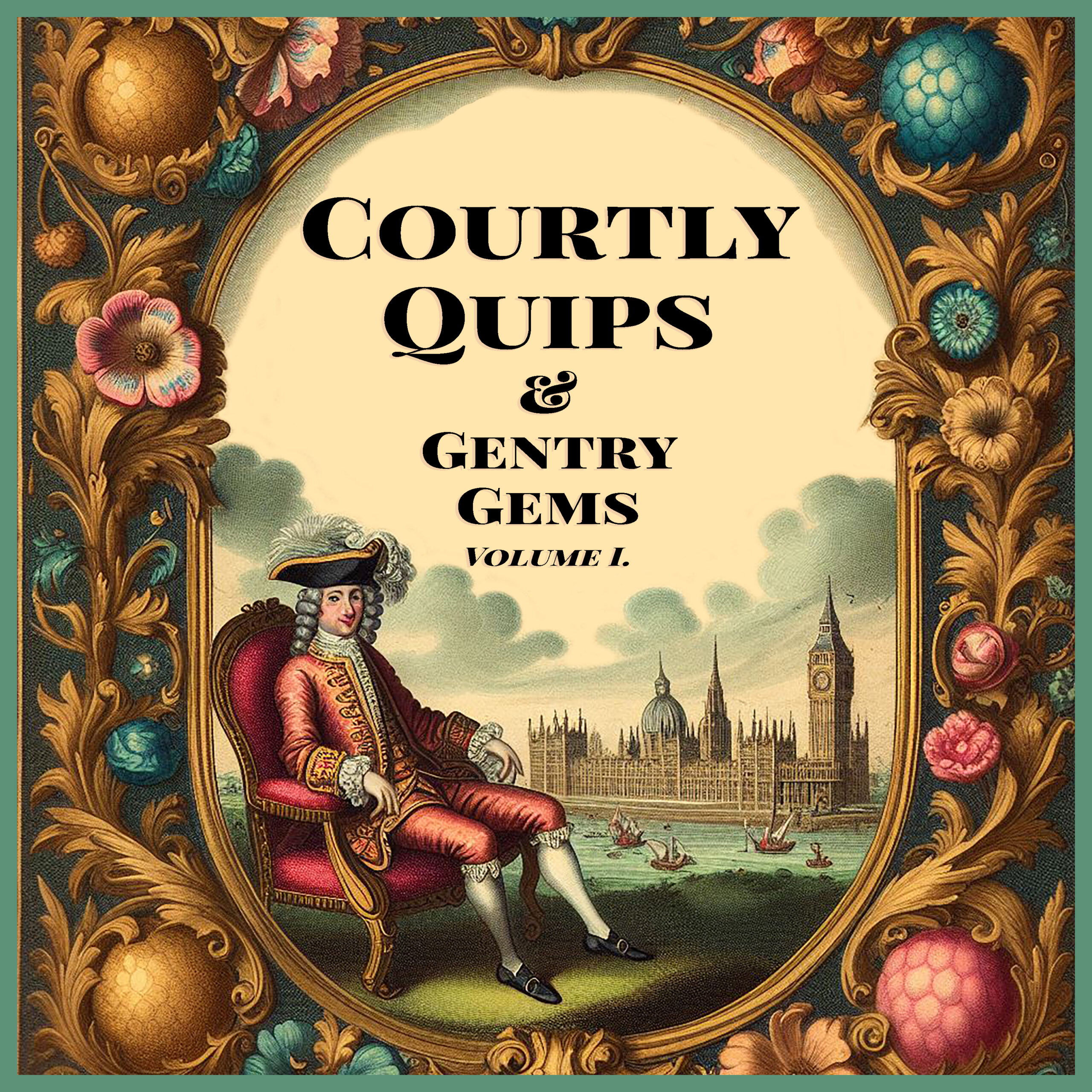
Free ebook from Gems Press. A new, true, and valuable addition to the amount of fun and wit loose in the world! Courtly Quips & Gentry Gems: The Best of Early English Wit, Volume I, is nearly three hundred pages of authentic quips, jests, bon mots, quotations, anecdotes, maxims, etc., from the 1700s and 1800s in England. Many of these appear here for the first time in a modern digitized format. At Gems Press, we save the parts worth saving and bring those to you, nicely formatted. After hundreds of years, these long-lost words are fresh once again, resurrected to make their charming way in the modern world. Hope you don’t mind bawdy!
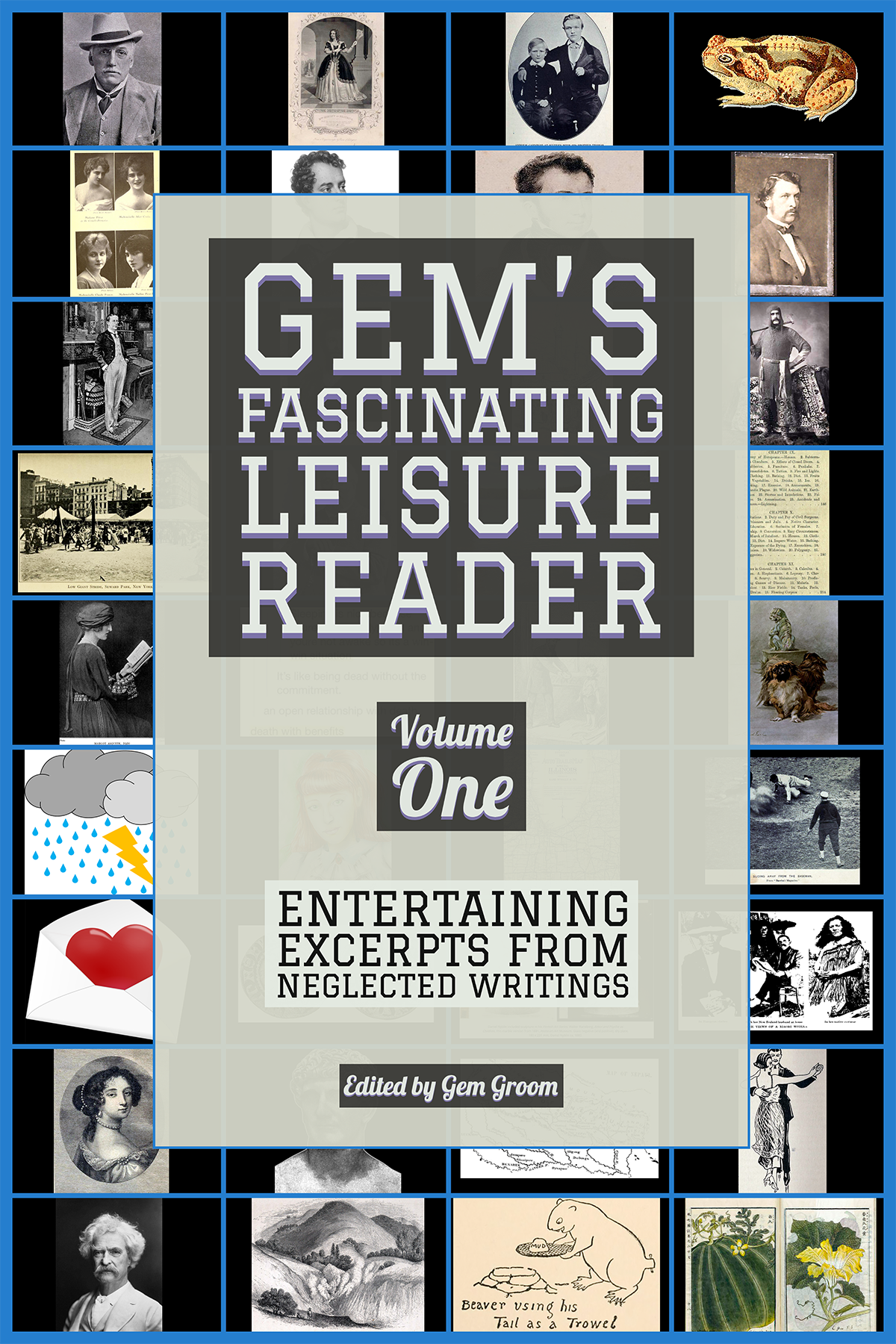
Free ebook from Gems Press. With Gem’s Fascinating Leisure Reader: Volume One, our aim is to delight and amaze you with the most interesting anecdotes in existence — ones that you would otherwise never encounter. These gems don’t see the light of day often enough — if ever — because they appear in books that are no longer new. They sink into oblivion, and all their sparkle is wasted. This volume takes you on a visit to Heaven and Hell (two historic Montmartre nightclubs that sound like way more fun than any clubs we know today). We’ll take you to mid-19th-century India as a doctor tries to solve the mystery of what causes malaria (why does staying awake when traveling through malarial areas help protect you from the miasma?). Among the 36 stories in this book, you’ll find advice — maybe not-so-good advice — for writing love letters, even if you’re not yet acquainted with the person you admire. You’ll find out how a girl born in prison became the wife of a king, and why a baseball legend likes to bully the catcher.
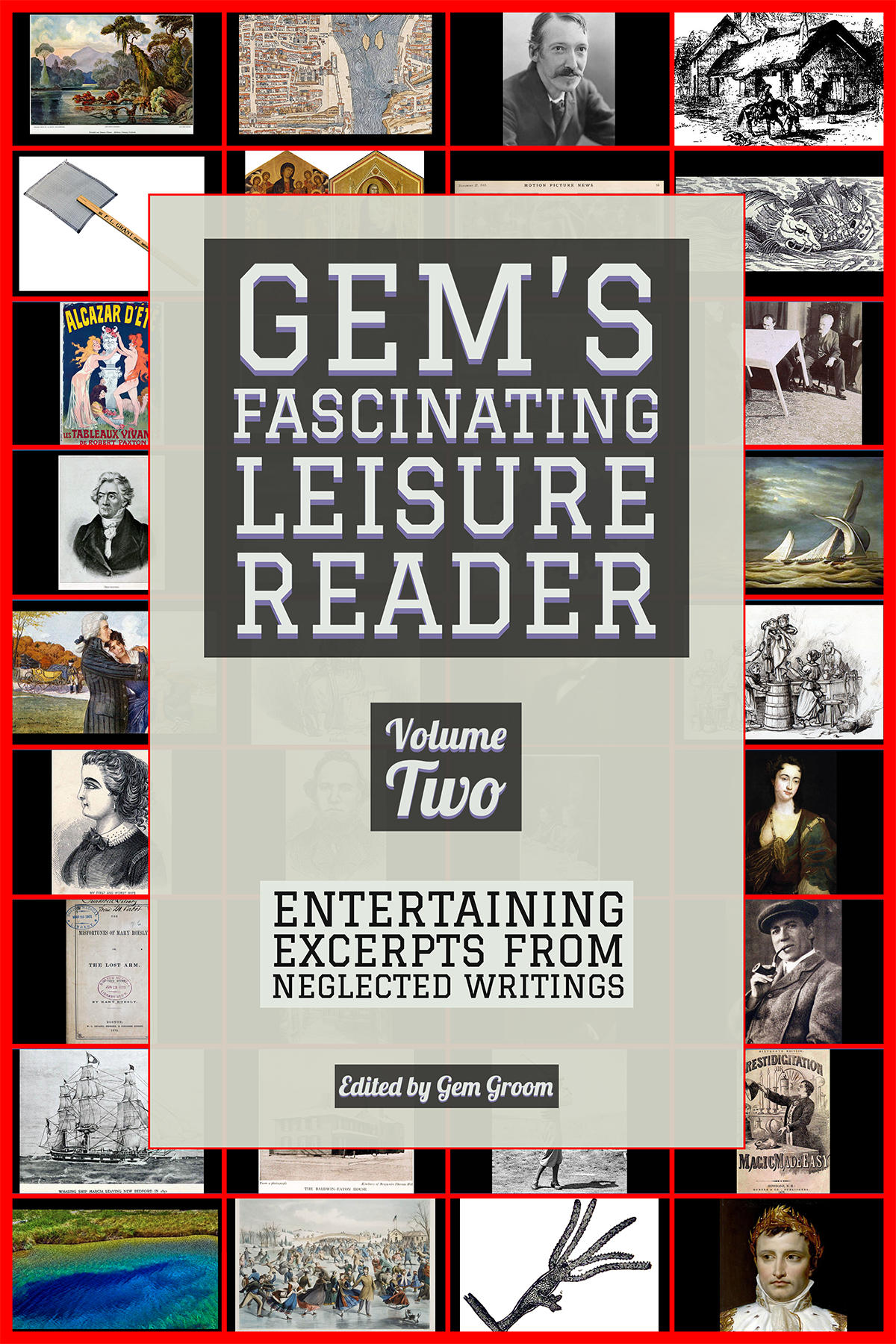
Free ebook from Gems Press. Gem’s Fascinating Leisure Reader: Volume Two shares the best of our recent discoveries from deserving but long-neglected texts. This volume includes three dozen of our new favorite anecdotes and passages, ones we think you’ll really enjoy and find interesting, gathered into book form. Gem’s Readers are basically bathroom readers for smart people. Some of the excerpts are funny; some are rather odd or alarming (although they should not give you nightmares); but they are all, in their way, fascinating. Some are poignant, some are wise, some bits may even be enlightening or may — uh-oh — give you ideas, but the unifying thread is that we found them all well worth reading. So we rescued them from oblivion and present them here for your delectation. Free ebook to download.
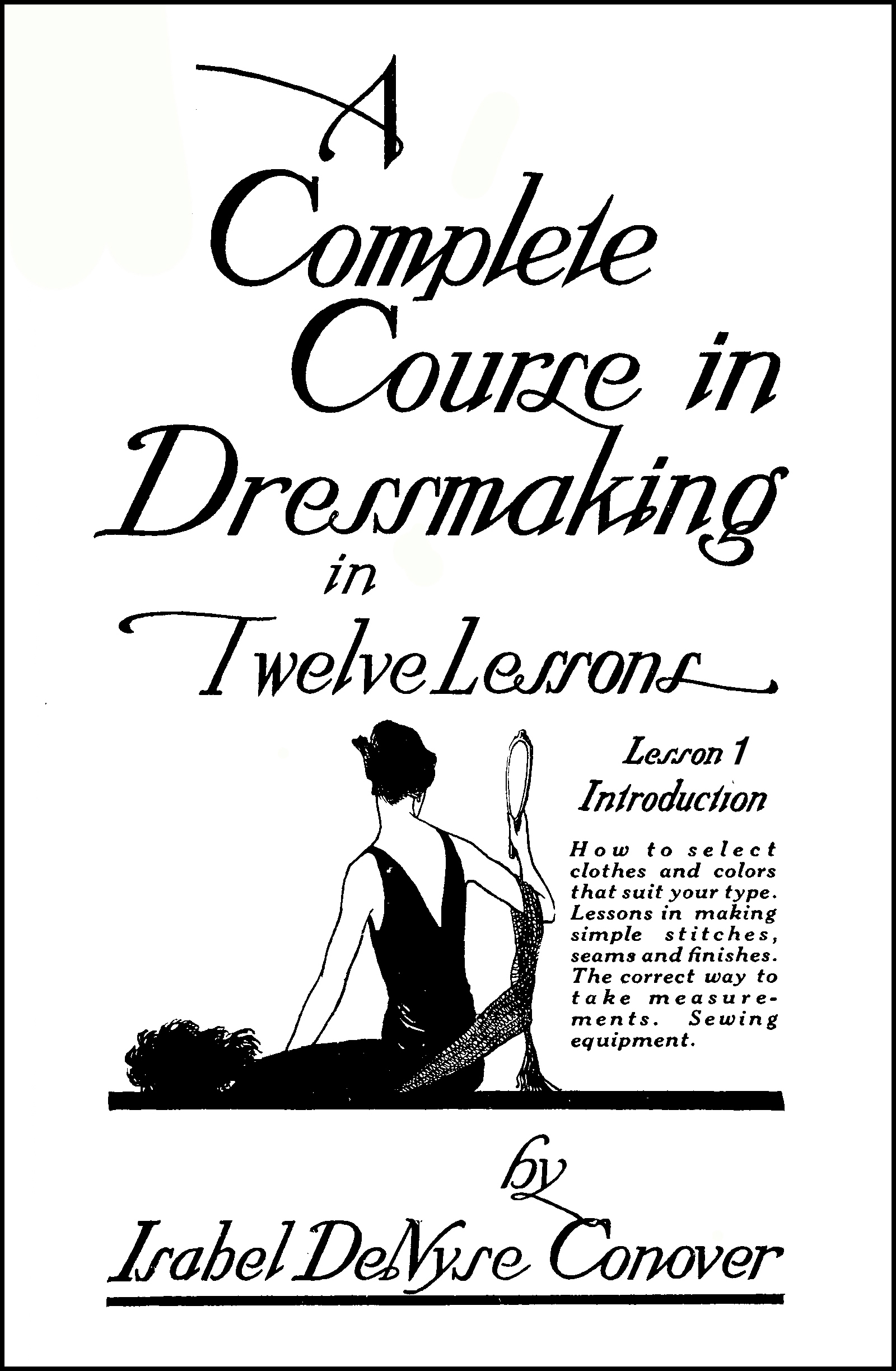
Free ebooks from Gems Press. We’ve republished a 12-book out-of-print series from 1921, A Complete Course in Dressmaking in Twelve Lessons. The book series was written by Isabel DeNyse Conover, a contemporary writer for ladies’ magazines, and it mixes fashion advice and ideas for nicening things up with detailed DIY how-to’s for the person who wants to take the world of clothing into their own hands. All 12 lessons are available as free ebook downloads. Paperback versions are available (for purchase) for the first three lessons (so far). We’ll do more if there’s interest.

Free ebook from Gems Press. First published in 1916, New Wars for Old is the landmark pacifist manifesto of John Haynes Holmes — the minister who went on to co-found the ACLU and the NAACP. Long unavailable, this forgotten classic has been renovated from page scans and re-typeset by Gems Press to create this new edition. Writing in the midst of World War I, Holmes argues that militarism cannot bring peace and calls instead for non-resistance as an active, constructive force. He clearly lays out his reasoning and visits the history of great pacifists, historical and contemporary, reiterating their advice to love one another.
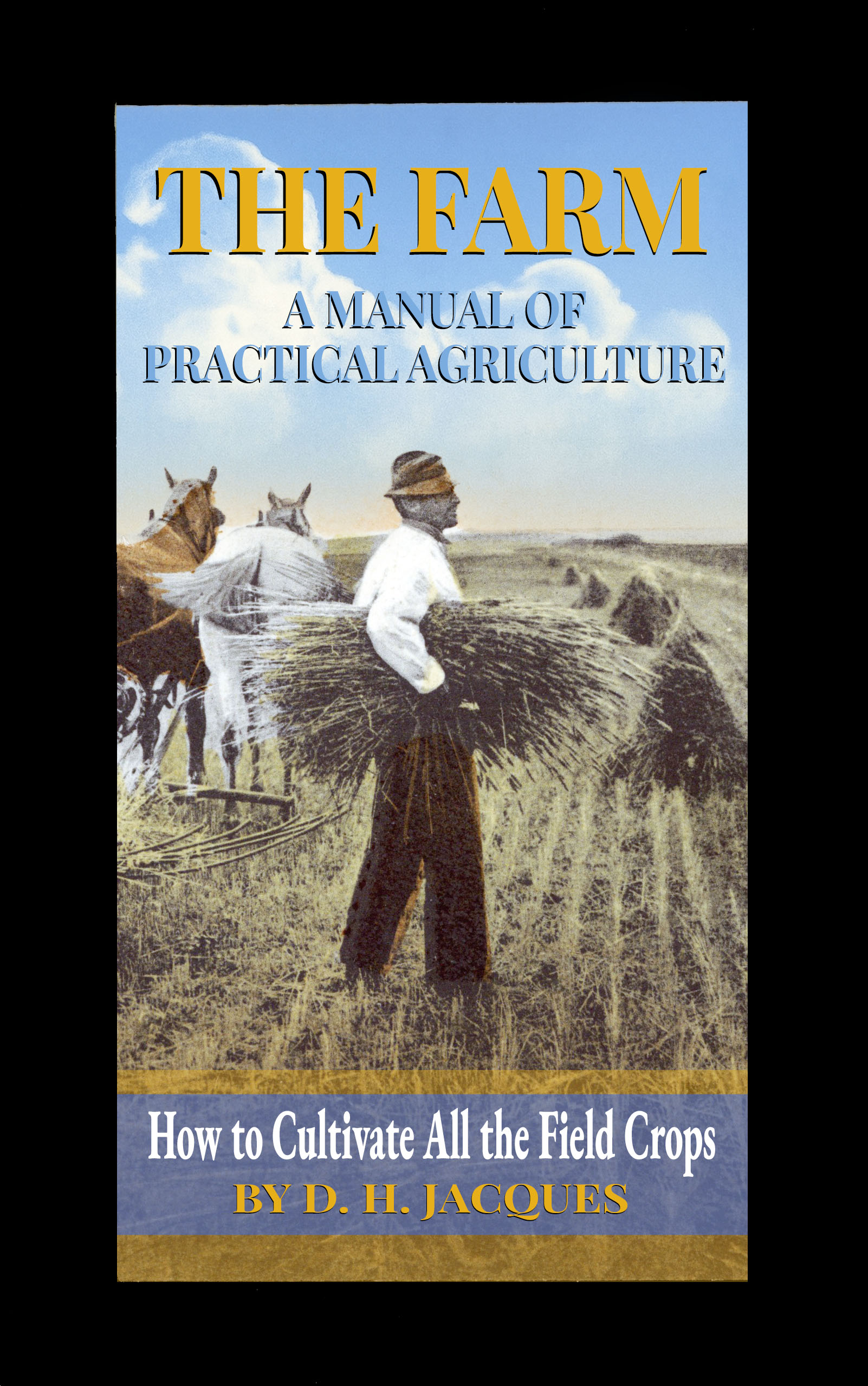
Free ebook from Gems Press. Discover the practical, time-tested wisdom of 19th-century American farming in The Farm by D.H. Jacques — a rich and detailed manual for anyone interested in self-sufficiency, homesteading, or regenerative agriculture. Originally written for the farmer and landowner of the 1800s, this comprehensive guide provides invaluable insights on everything from soil health and crop rotation to livestock care, farm buildings, fencing, and farm economics.

Free ebook from Gems Press. If the only things in this book were the farmers’ paeans to their cows, it would be well worth it. But there’s much more. First published in 1870, The Barn-Yard is a window into the practical, time-tested methods of animal husbandry before the rise of industrial agriculture. Written by D. H. Jacques, this manual offers an experienced look at the care, feeding, breeding, housing, and management of horses, cattle, sheep, pigs, poultry, and bees.

Free ebook from Gems Press. A Rediscovered Classic for Regenerative Growers, Homesteaders, and Gardeners of All Kinds. Long before the word permaculture was coined, 19th-century author D. H. Jacques offered a gardening philosophy rooted in observation, simplicity, and working with the land. This classic manual — published in 1870 — remains a valuable, practical resource for anyone seeking to grow food, flowers, and fruit trees in harmony with nature.

Free ebook from Gems Press. Step into the fragrant world of flowers and leaves with F. A. Hampton’s classic 1925 exploration of scent—its origins, its chemistry, and its deep connection to human experience. The Scent of Flowers and Leaves blends botanical science, historical insight, and sensory observation into a journey that ranges from the perfume of the rose to the pungency of herbs, from the delicate lure of night-blooming blossoms to the strategies plants use to attract (or repel) insects.
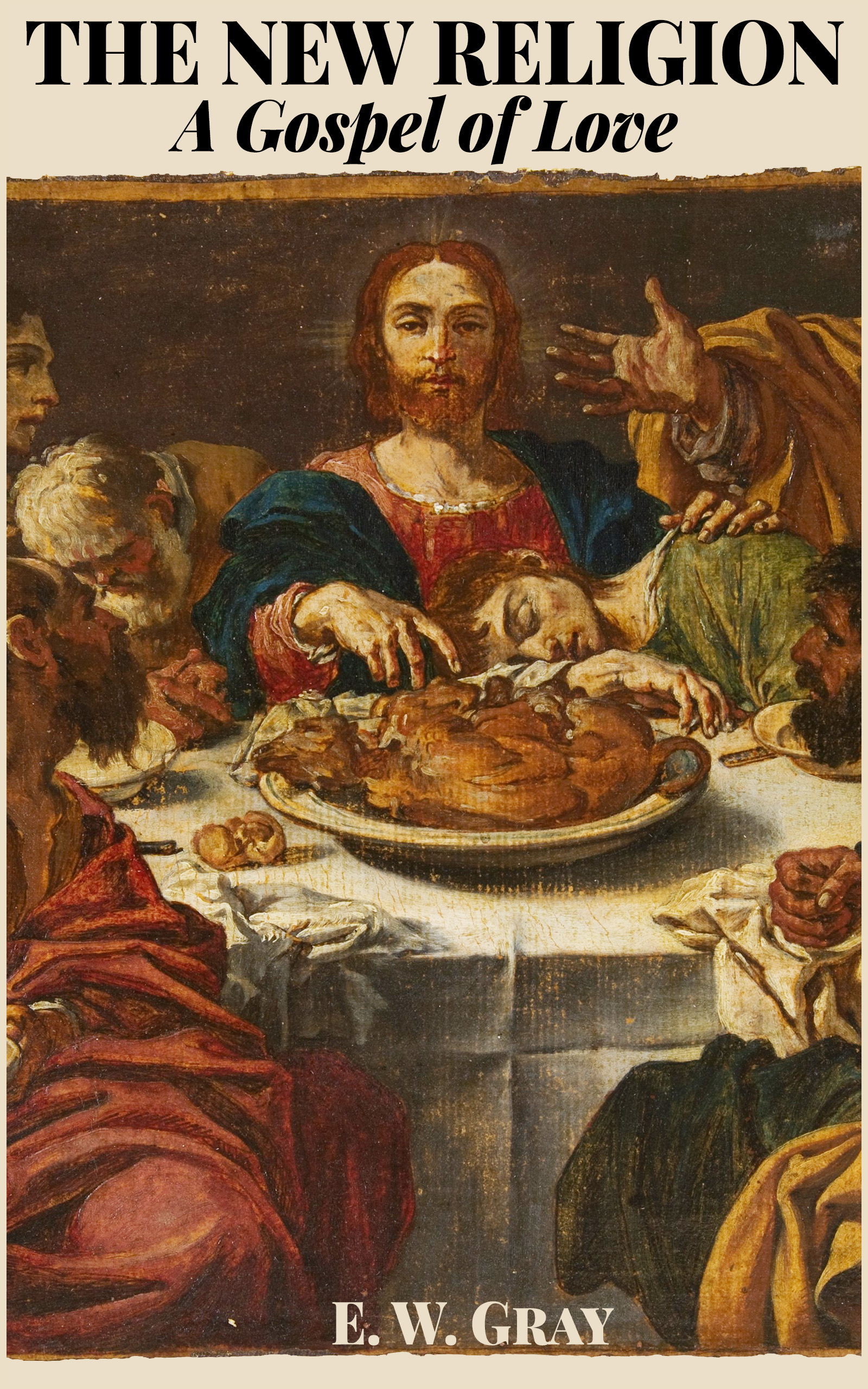
Free ebook from Gems Press. God is Love. This new edition of E. W. Gray’s 1890 classic is a timely reminder for today’s Christians. The book is dedicated to “the lovers of truth who have found it difficult to accept Christianity as it is usually delivered from the pulpit,” and reminds us what Jesus actually taught and practiced, making this volume a welcome resource for spiritual growth and happiness on Earth. What would Christianity look like if we stripped away centuries of political compromise, theological complexity, and institutional control—and went back to what Jesus actually taught? First published in 1890, and freshly formatted for modern readers, with an updated index, this bold and timely work challenges readers to examine the faith with fresh eyes.
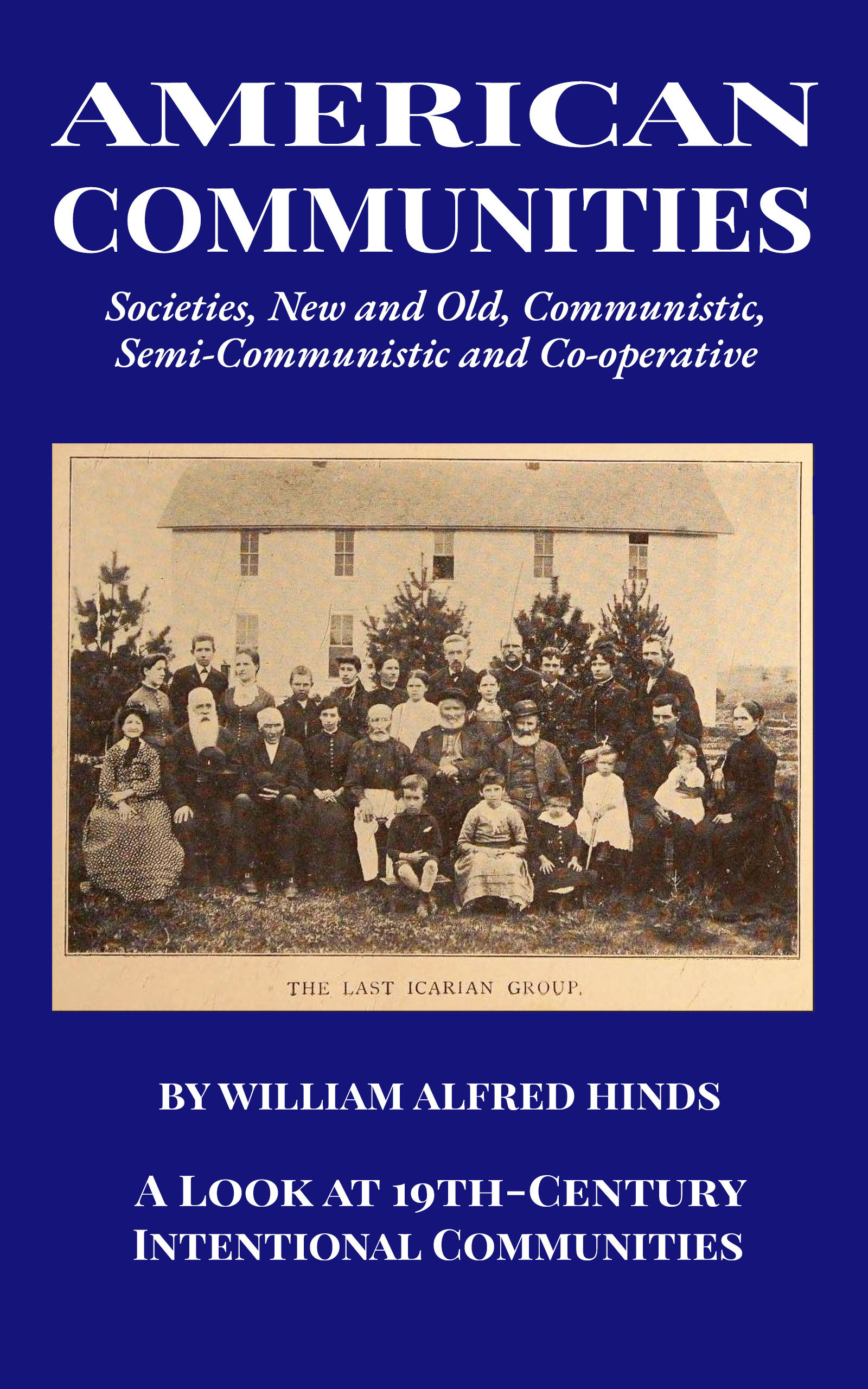
Free ebook from Gems Press. American Communities by William A. Hinds is a groundbreaking exploration of communal living experiments in 19th-century America. First published in 1878, and updated in 1902 — and digitized and re-typeset by Gems Press in 2025 — this meticulously detailed account chronicles more than 60 cooperative colonies, religious utopias, and intentional communities—ranging from the Shakers and the Oneida Community to lesser-known ventures like Aurora and Icaria.
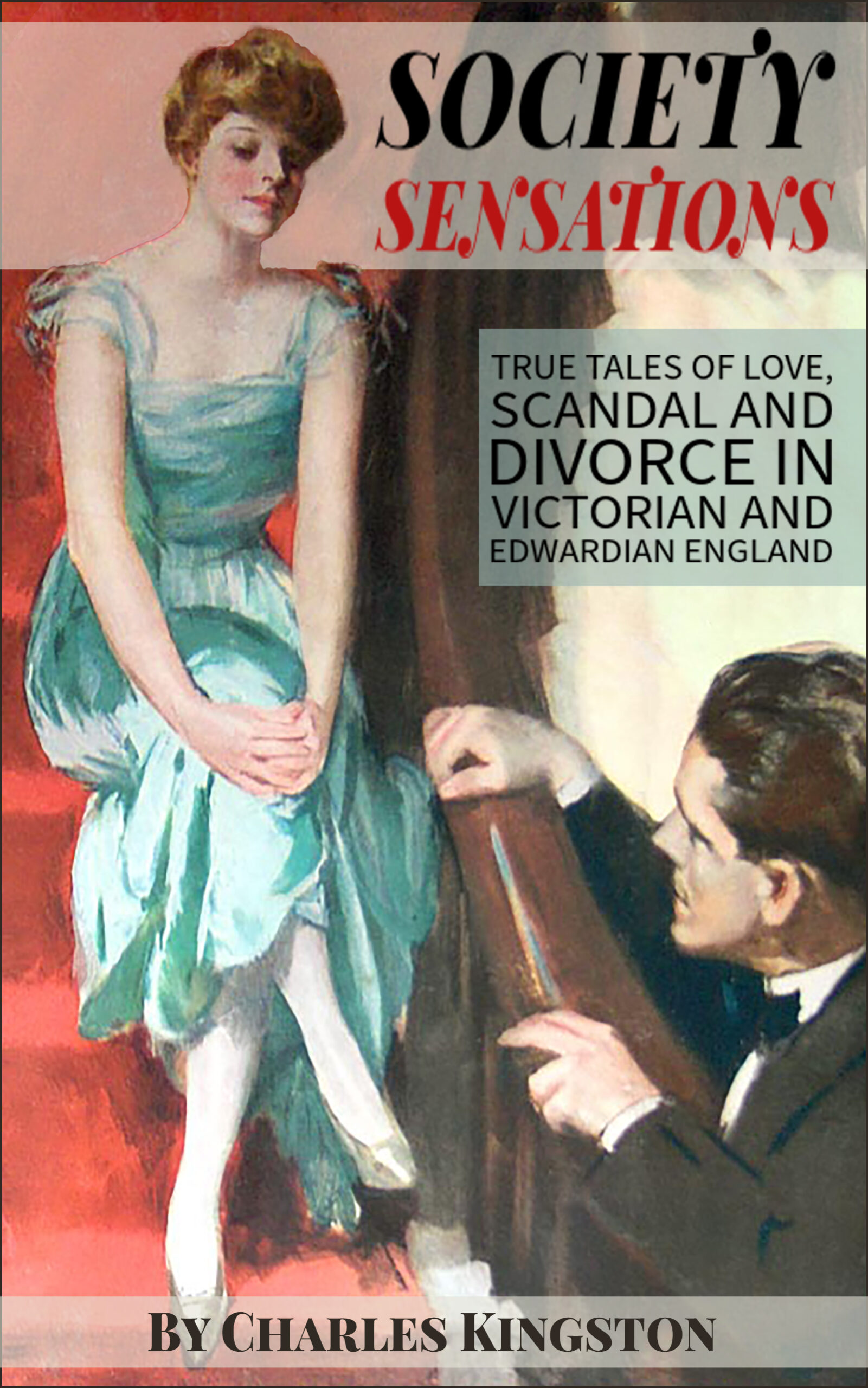
Free ebook from Gems Press. Before reality television and tabloids, there were the English courts—and the sensational stories that played out within them. Originally published in 1922, Society Sensations collects 16 real-life cases of passion, betrayal, and high drama drawn from the English courts. Spanning the mid-19th to early 20th centuries, these true tales reveal the private indiscretions of public figures: secret marriages, scandalous affairs, and courtroom confessions that captivated Victorian and Edwardian society.

Free ebook from Gems Press. Royal blood, forbidden love, and scandals that rocked empires. Originally published in 1919, Famous Morganatic Marriages reveals the secret romances and controversial unions that brought the crowned heads of Europe to their knees. In this captivating collection of true stories, author Charles Kingston chronicles twenty remarkable liaisons between royalty and their non-royal lovers—marriages that broke the rules, rewrote succession, and often ended in tragedy or exile.

Free ebook from Gems Press. In this humorous fantasy adventure, Marcus Realwright, traveling elf-magician, learns more than he ever imagined possible about the effects of casting a spell in the presence of a disbeliever in magic. His companion in The Book of Glimmer, a tabby cat called Stub, used to be Eddie, the young Earl of Stubbenfield — but oops, he lied about his (dis)belief in magic, and so Marcus’s spell has gone awry and turned the young Earl into a cat. No one is happy about it, except Stub’s mom, who is thrilled he’s now rid of his many unsuitable girlfriends….
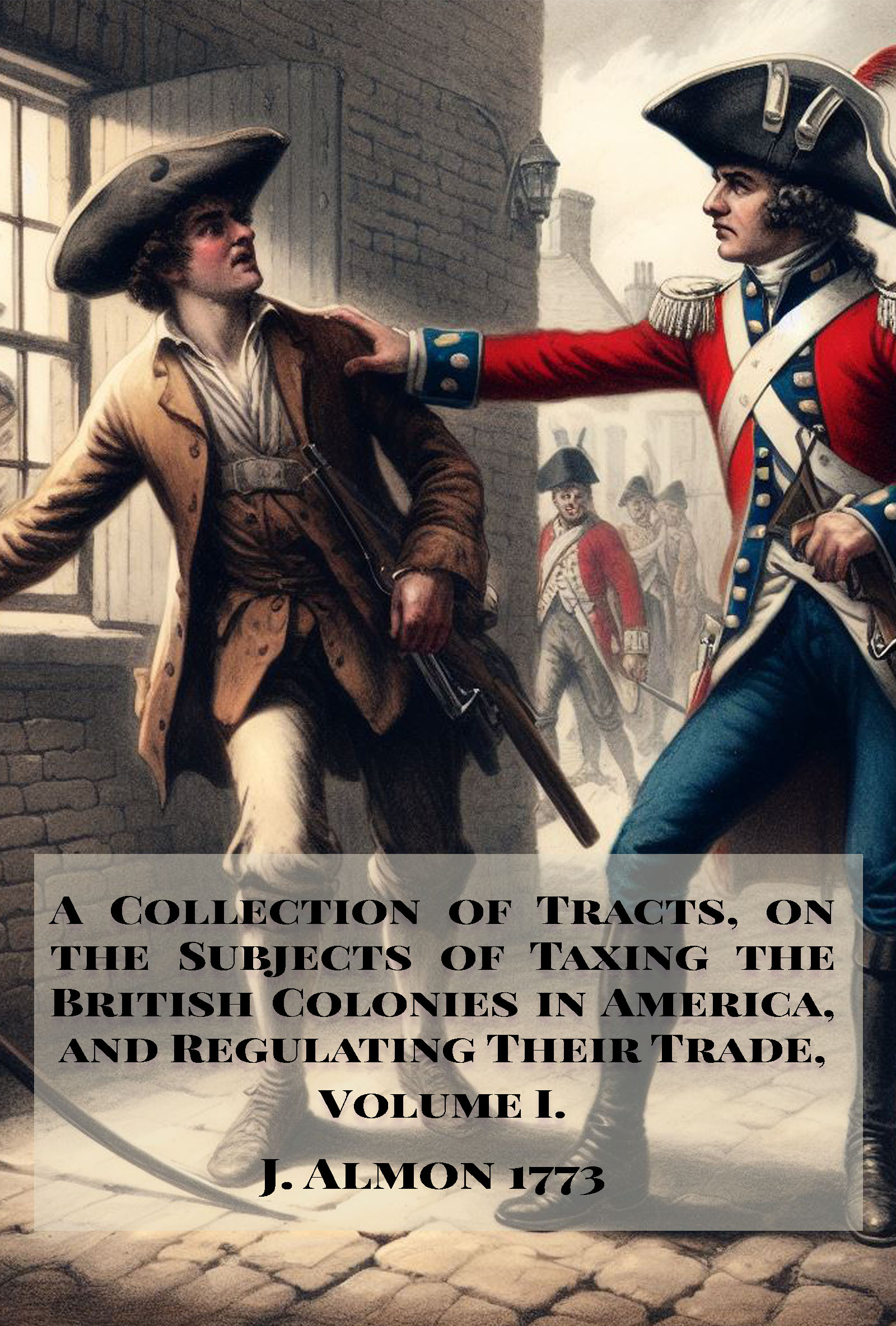
Free ebook from Gems Press. A fascinating new resource for historians and people who like well-reasoned arguments on weighty issues — published in 1773. A Collection of Tracts, on the Subjects of Taxing the British Colonies in America, and Regulating Their Trade.: Volume I is now available in both Kindle and paperback versions. Finally, we’ve created the first version in modern typeface and the first true digital version of these classic contemporary writings about the issues preceding the U.S. Revolutionary War. Both the Kindle and the paperback contain the full contents of the original Volume I — 83,000+ words, including all the footnotes. For the first time, you can read this book without having to deal with those funny-looking s’s.
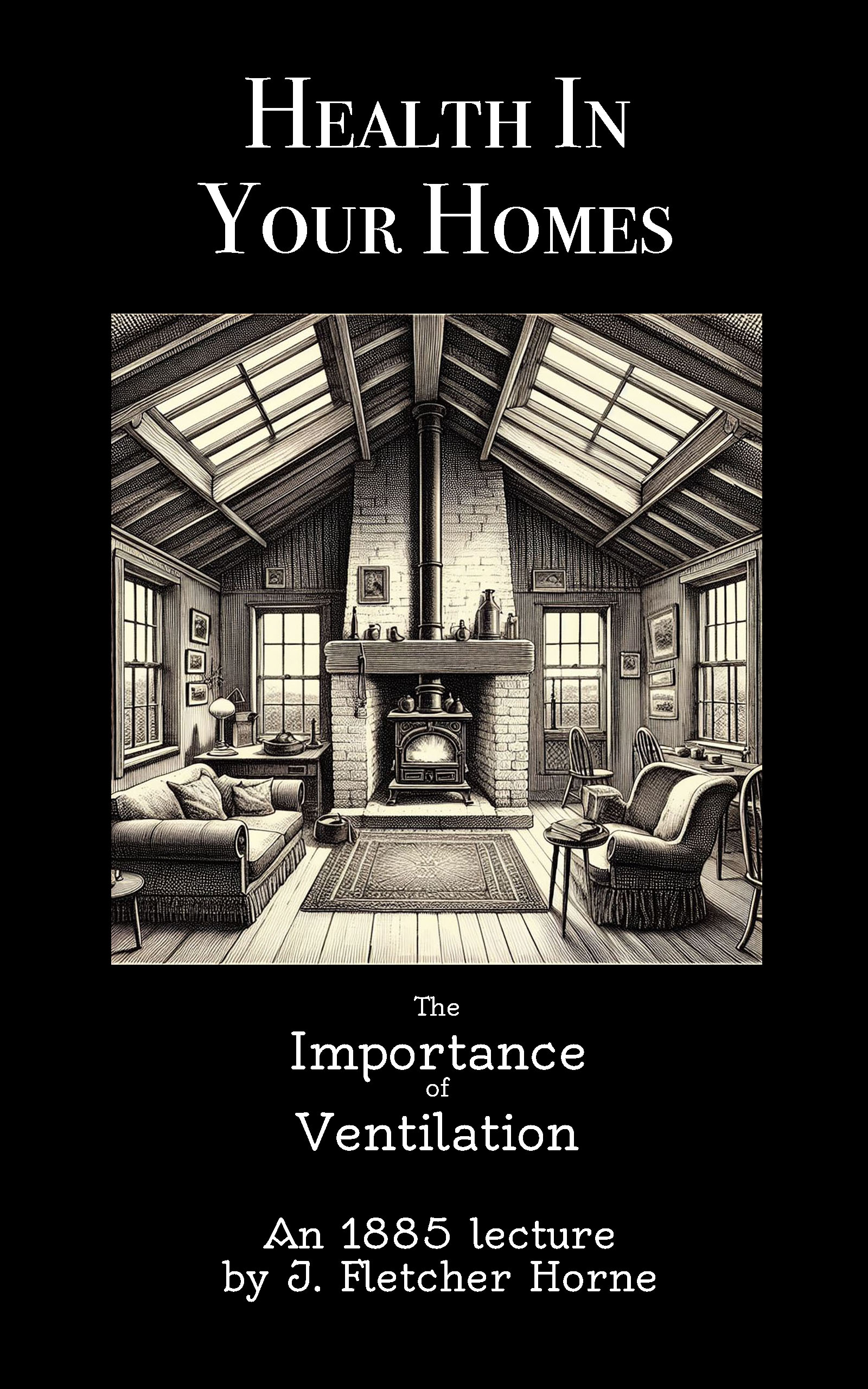
Free ebook from Gems Press. This lecture on “sanitary science” by Dr. J. Fletcher Horne in the year 1885 has a great deal of smart thinking on the idea of keeping your home healthy — and most of it is extra-helpful because it is advice barely mentioned nowadays, despite representing basic tenets of health. For instance, his extensive emphasis on ventilation is literally refreshing. And his statement that the human body is “but a mass of hidden drains, large and small and, how directly the health of the individual is dependent on their condition!” rings true and is a concept worth thinking about in relation to our health. Here’s how Dr. Horne sums up a healthy house: “To have your house healthy it must present no facilities for holding dust or the poisonous particles of disease; if it retain the one it is likely to retain the other. It must possess every facility for the removal of its impurities as fast as they are produced….
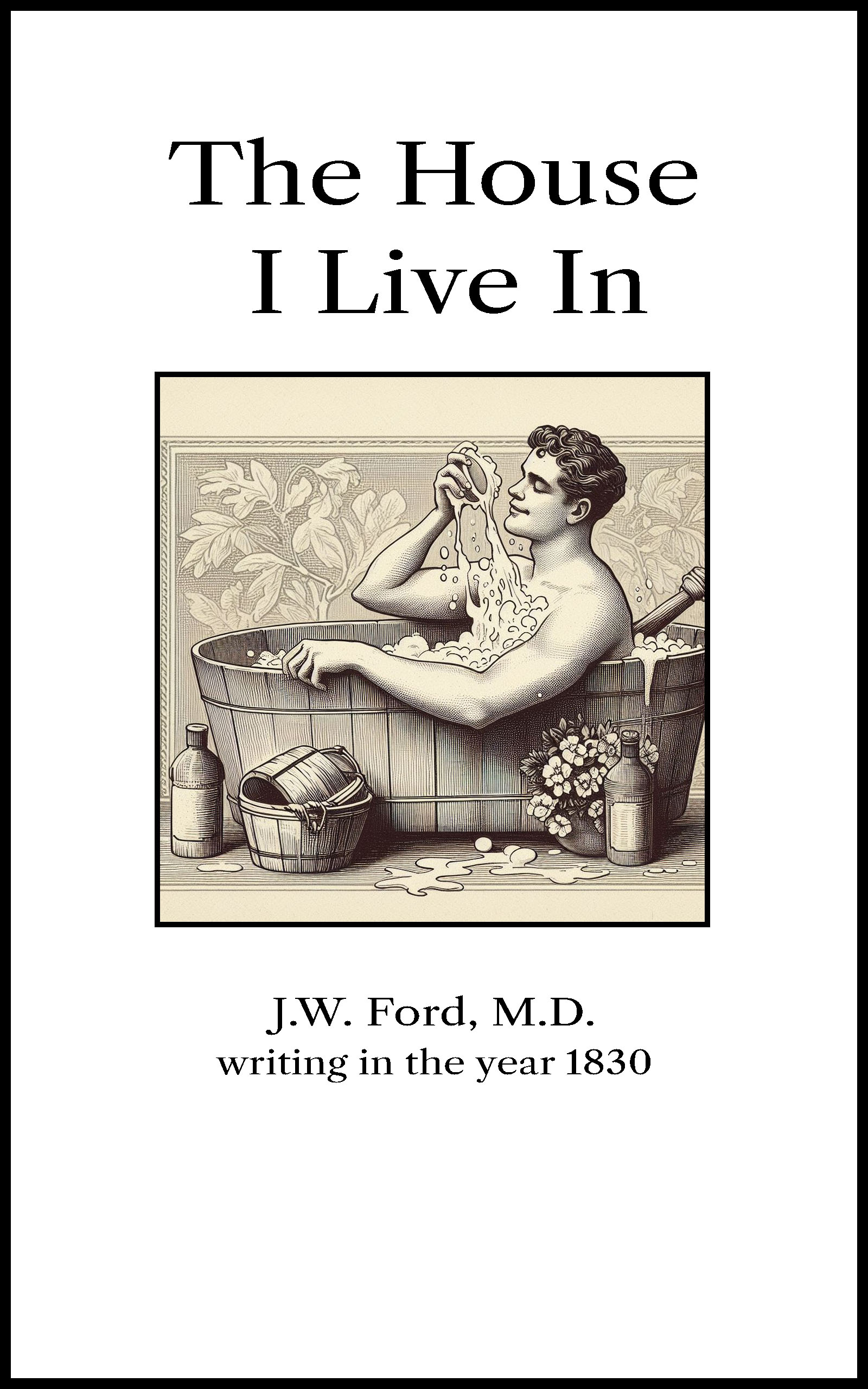
Free ebook from Gems Press. What could a physician from the year 1830 have to say that could possibly be of use to us today? How about, “Take a bath”? Author J.W. Ford, M.D., explains why sometimes some people should take a cold bath, and some should take a tepid bath, but pretty much everyone should have a vapour bath, also known as a steam bath, as often as possible. It’s no coincidence that the doctor had a thriving business administering “Simple and Medicated Vapor Baths” at his residence on Tyler Street in Lowell, Massachusetts. Dr. Ford takes an interesting look at the skin as an organ of exhalation and the damage to internal organs that he says can result when the skin can’t breathe properly….
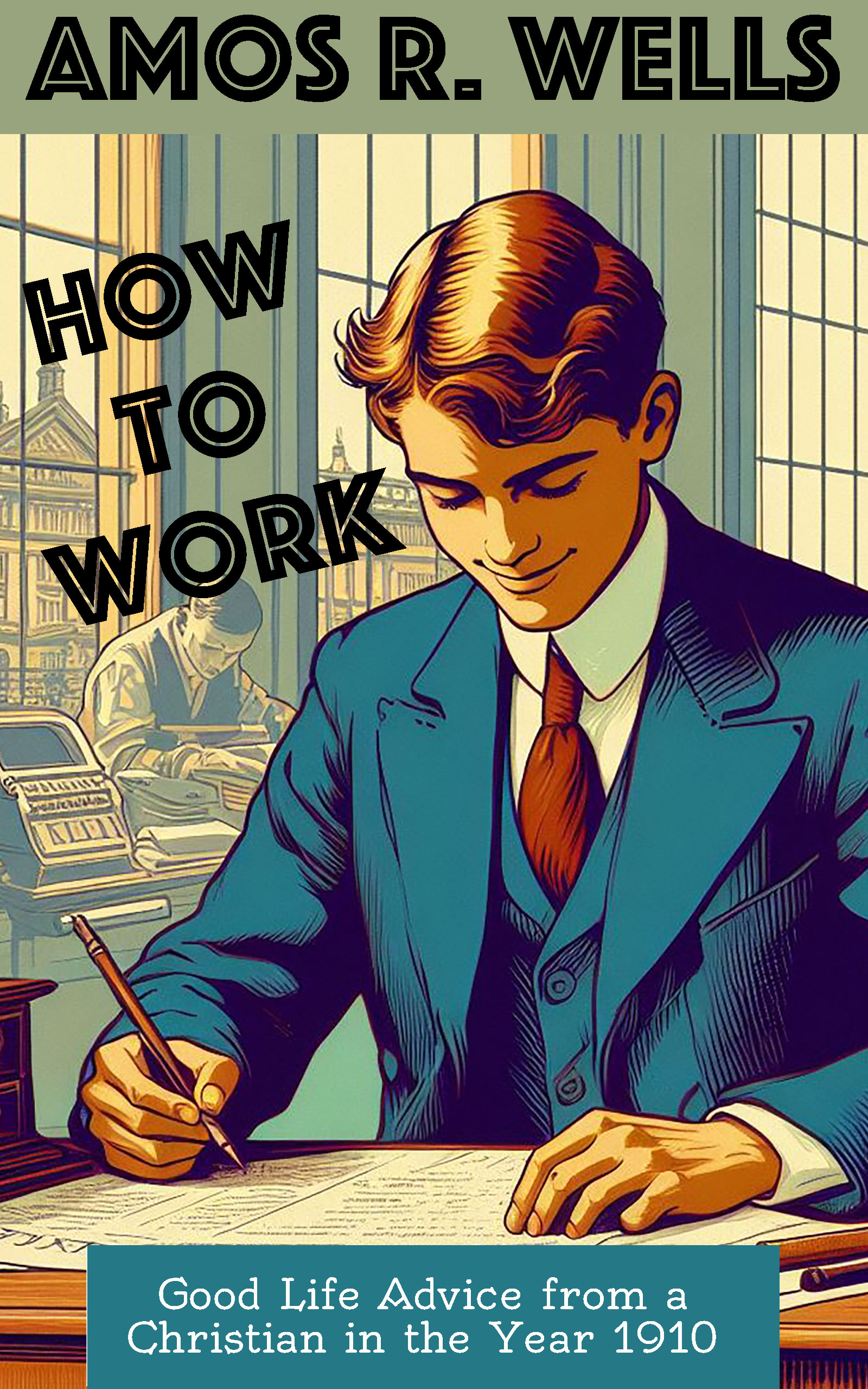
Free ebook from Gems Press. Amos G. Wells’ classic book from the year 1910, How to Work, is a smart, useful, and enjoyable read. It’s full of good life advice, as if from an experienced friend whom you like to hang out with. The author is a Christian, and his faith is central to the book, yet the book is full of practical advice, and the faith it talks about could equally be any authentic religious or spiritual conception of Christ Consciousness, or God – there is no doctrine or dogmatism in this book…. The sincerity of Mr. Wells’ good-natured attempt to help us all along in life comes shining through….